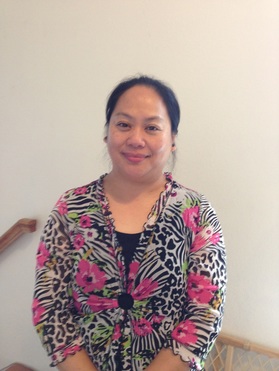Phua Lee
|
Phua Lee was born on April 10th, 1967 in the northern part of Laos. When she was a child, her family fled the country to a refugee camp. She arrived in the United States when she was 12 years old, about six months before her husband Chao arrived. They got married in 1989. They had their first child in 2000 in St. Paul, Minnesota.
Culture shock is a major concern for those who migrate to a new region of the world. For Lee, settling down in the United States was the hardest adjustment that she had to make. First, she arrived in a small town called Dixon, Illinois. But it wasn't until her family moved to Colorado when she experienced discrimination. Her classmates would attempt to get under her skin by trying to speak Hmong. That would go on until one day Lee stood up for herself by talking back to those who tried to hurt her. Women in Laos are not encouraged to pursue an education. In her interview she says, "In Laos culture the girls need to learn how to cook and clean, and take care of the house, that's it," which is very different from what it is like in the United States. When Lee came to the United States she was twelve years old, about the age of a sixth grader. She knew almost no English at the time, so the education system put her in the fifth grade so she could learn the basics of the English language. A year and a half after graduating from high school, she earned a secretarial degree. Once she got that degree, her father allowed her to go to Bible School in St. Paul, Minnesota, where she got her B.A. Lee compares ACTS Housing to the American missionaries that first helped her family out when they migrated to the U.S. The missionaries helped them acquire homes by assisting with financial statements and permits. The house that Lee's family purchased with the help of ACTS Housing needed major renovations, which took about a year to complete. Although major construction was up to the men of the family, it wouldn't have been possible without Lee constantly running back and forth to the store to get the supplies needed and also making sure that the kids were taken care of. She says in the interview, "It feels really good to live in a house that you built with your own hands." Taking pride in what she built, she can only hope that the surrounding community will take a step in the same direction to help improve the overall neighborhood. Phua Lee, Interviewed by Nicholas Teresi, June 2016 |
|

